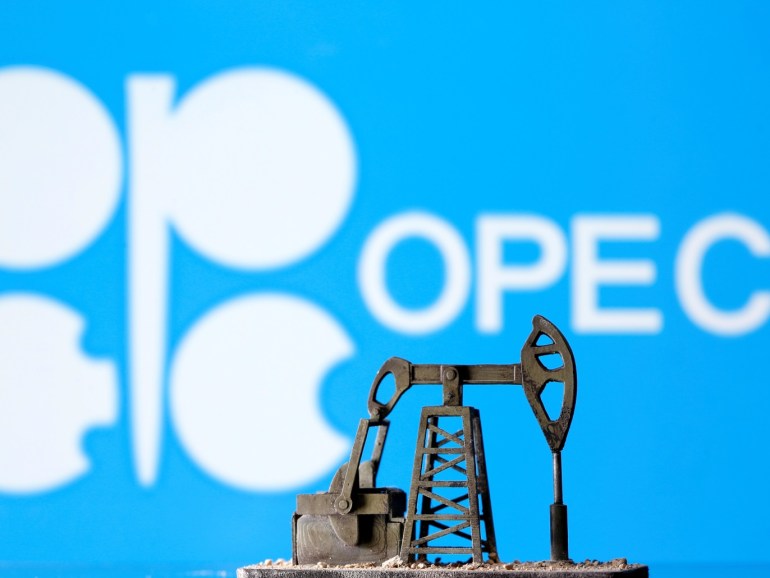Controversy has returned within Iraq over whether it should seek exemption from OPEC Plus oil supply cuts, as lower prices put pressure on its public finances, posing a challenge to the government, which is struggling to address the devastation caused by years of war and rampant corruption.
Iraq - the second largest producer in OPEC - previously failed to fully comply with the OPEC Plus oil production cuts, as it pumped more than the targets set for it since the agreement was first signed in 2016 between OPEC and its allies led by Russia.
An OPEC source said, "Iraq believes that it was not treated properly in December 2016, when it was not excluded. With the economy still suffering due to low prices, this issue continues to reappear."
Exhausted sectors
The economy and the oil sector in Iraq have been exhausted by years of wars and sanctions after the US invasion.
Baghdad complains that it is struggling to revive the stagnant oil industry, at a time when the rest of OPEC members will benefit and strengthen their market shares.
Iraq is counting on oil to finance 97% of its government budget.
Last Wednesday, Finance Minister Ali Allawi told Parliament that reforming the Iraqi economy will take 5 years of work, and that the government debt has reached between 80% and 90% of the national product, while the foreign debt is $ 133 billion.
As of May 1, the Organization of Petroleum Exporting Countries (OPEC) and its allies in what is known as the OPEC Plus group, implemented a record cut of 9.7 million barrels per day, or 10% of global production, after the Corona virus crushed a third of global demand.
As of August 1, the cut was eased to 7.7 million barrels per day until next December.
And last June, Iraq said it had asked OPEC to take into account the members ’economic situation when sharing the burden of future oil production cuts.
The World Bank estimates that Iraq's economy will contract by 9.7% in 2020, in light of lower oil prices and the Corona virus, compared to 4.4% growth in 2019.
OPEC and its allies have eased the decision to cut production to 7.7 million barrels per day until next December (Reuters)
Criticism
Iraqi politicians criticize the agreement signed by the previous caretaker government, according to which Baghdad is committed to significantly reducing its production.
With oil prices currently trading at about $ 40 a barrel, sources in Iraq and OPEC told Reuters that opposition to oil cuts is increasing behind closed doors, and talks about reviving old calls to consider the size of the cuts have reappeared.
A senior Iraqi official familiar with the talks said that there is a difference of views between the Oil Ministry and the Office of Prime Minister Mustafa Al-Kazemi, regarding full compliance with the cuts or requesting an exemption from them next year.
The official, who requested anonymity, said that the Oil Ministry wants to request an exemption, while officials in the Prime Minister's Office insist on compliance, and the official added that the dispute is about the financial problems of Iraq now.
In May and June of last year, Iraq agreed to reduce its crude production by a little more than one million barrels per day, while easing that reduction to 849 thousand barrels per day from last July until the end of this year.
Iraq continued to be a member in the agreement, but it produced more than its share, but it now wants to fully adhere to the agreed production goals, and even compensate for its previously increased production in the period between May and July last through a larger reduction in the following months.
"There is strong opposition ... to their (Iraq) continuing participation in supply cuts," the OPEC source said, adding that there had been informal talks about Baghdad's need to request an exemption from oil cuts in 2021, but it was not clear whether Iraq would actually take that step or not. No.
And last August, Iraq reached its highest compliance rate in the past few years, but he said it might need to extend the compensation period by two months.
A spokesman for the Iraqi Oil Ministry said last week that Baghdad remains fully committed to the agreement to reduce OPEC Plus oil supplies, denying media reports that it is seeking an exemption from the reduction agreement during the first quarter of 2021.

